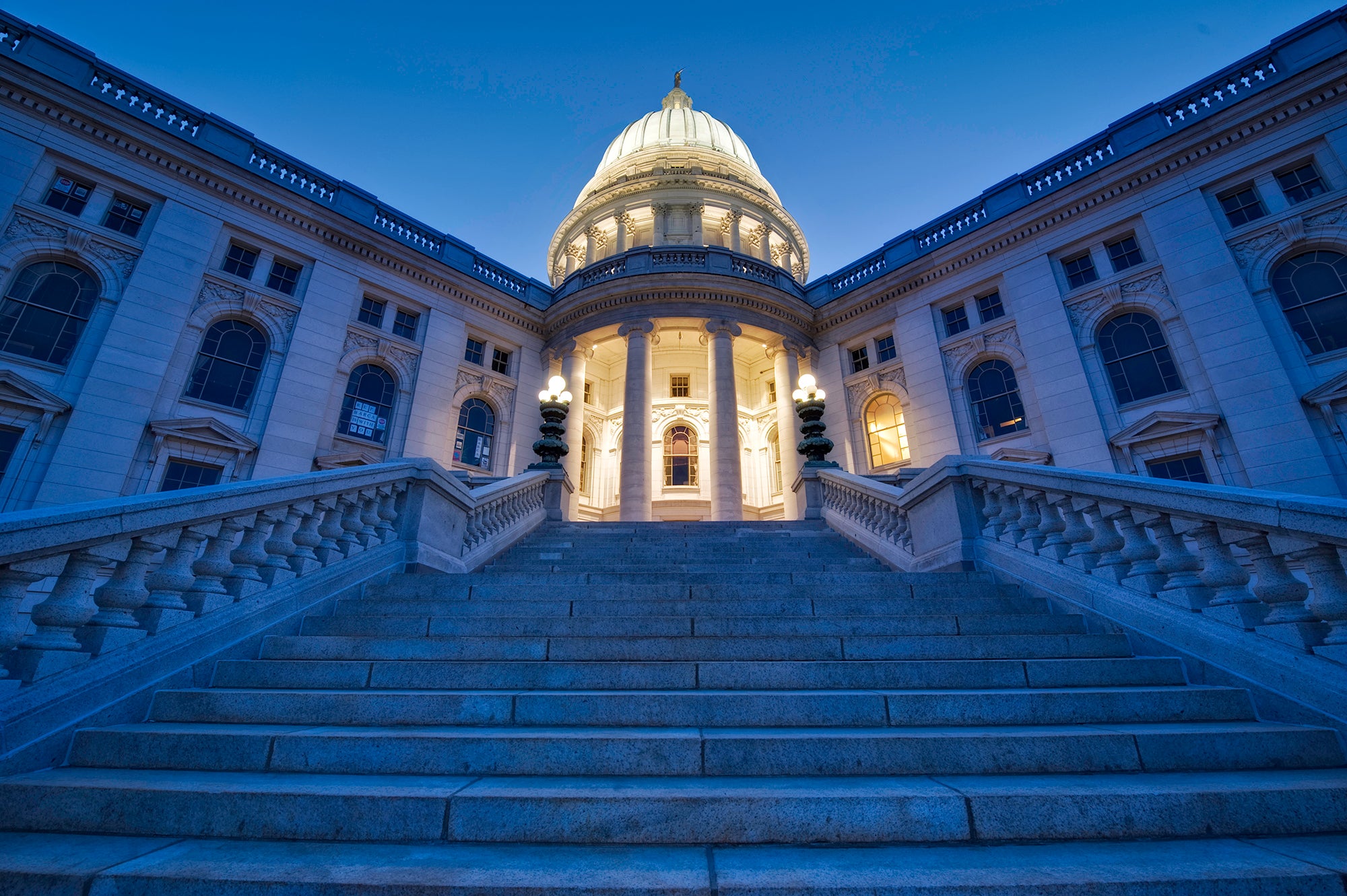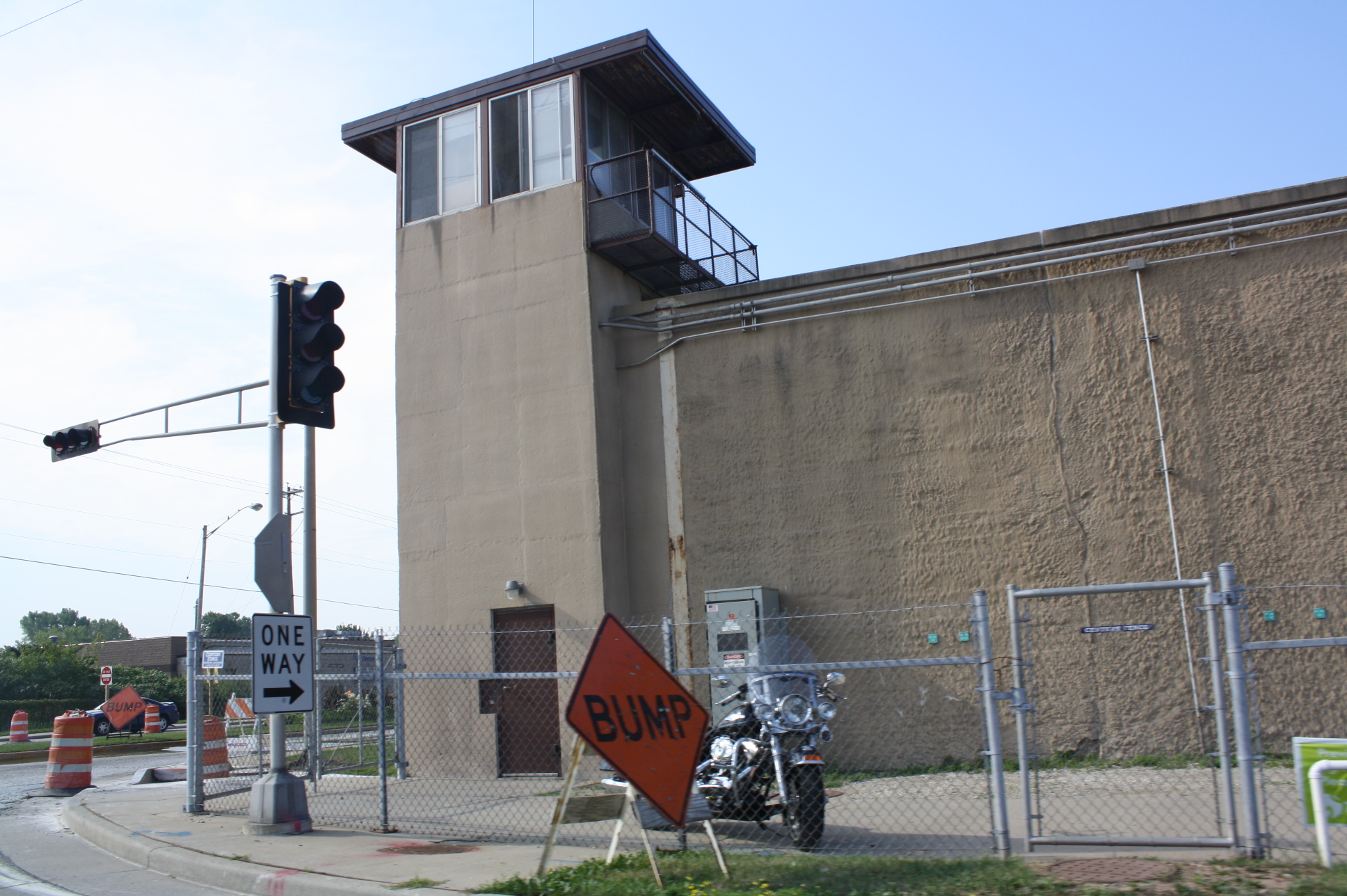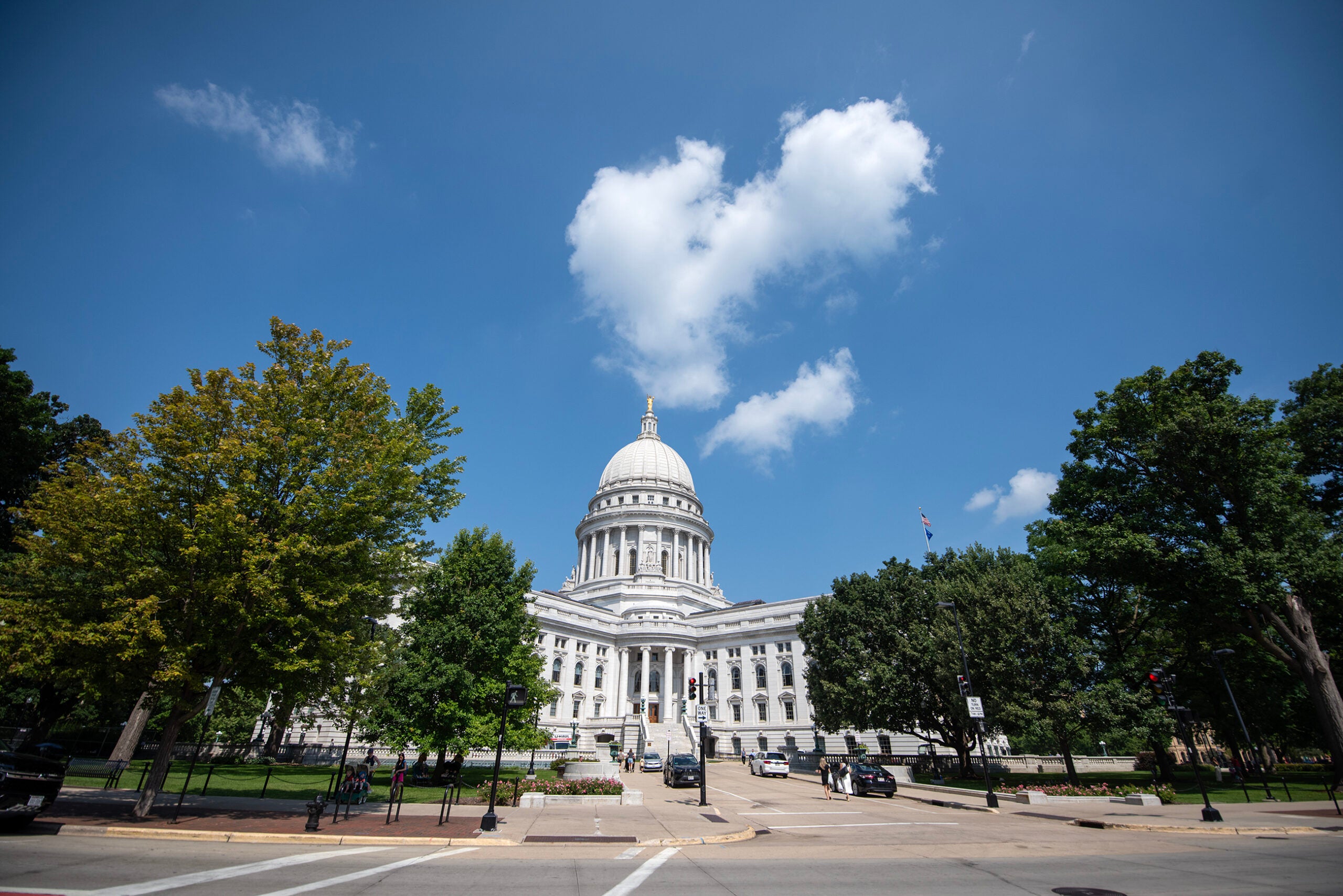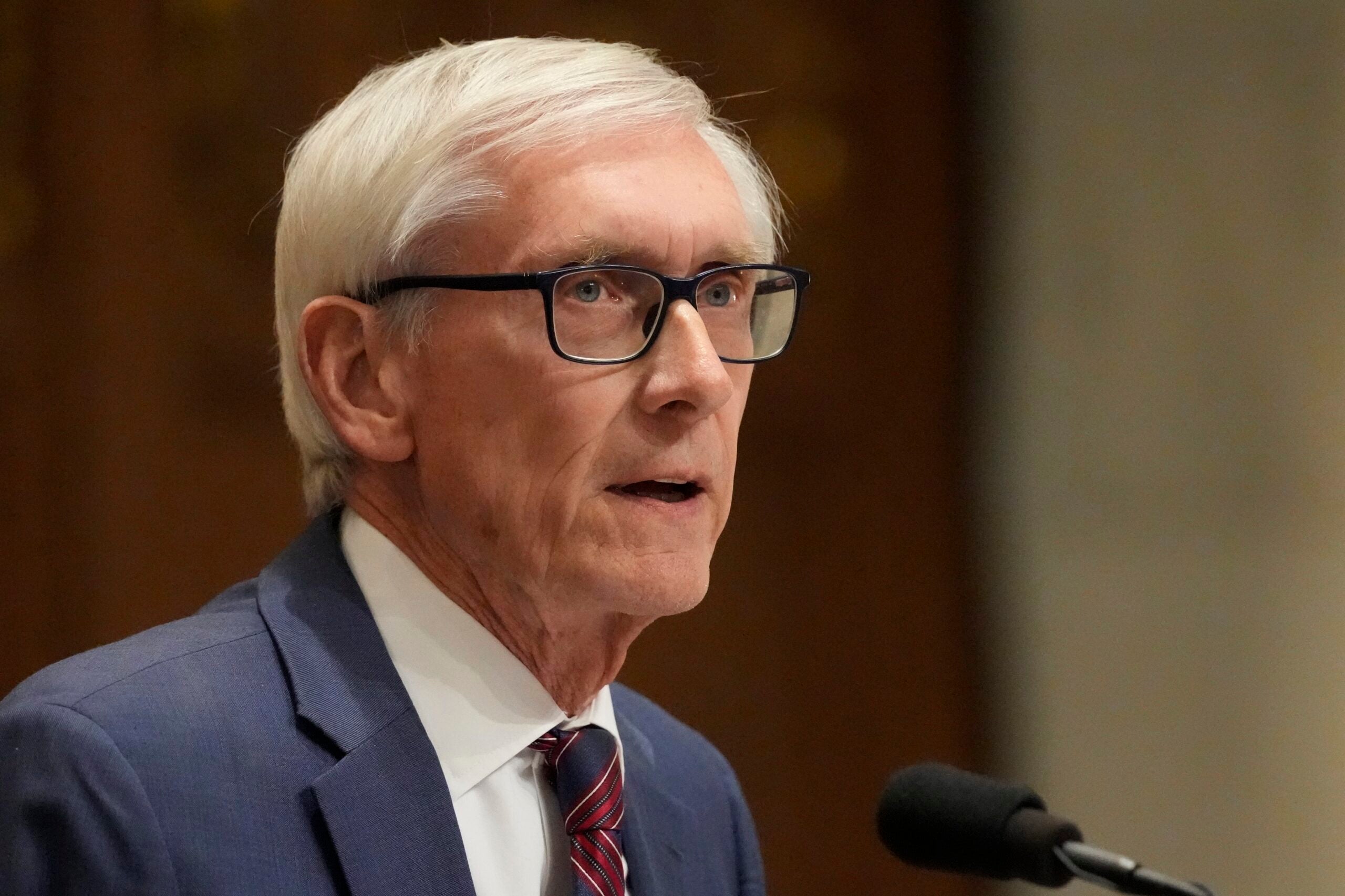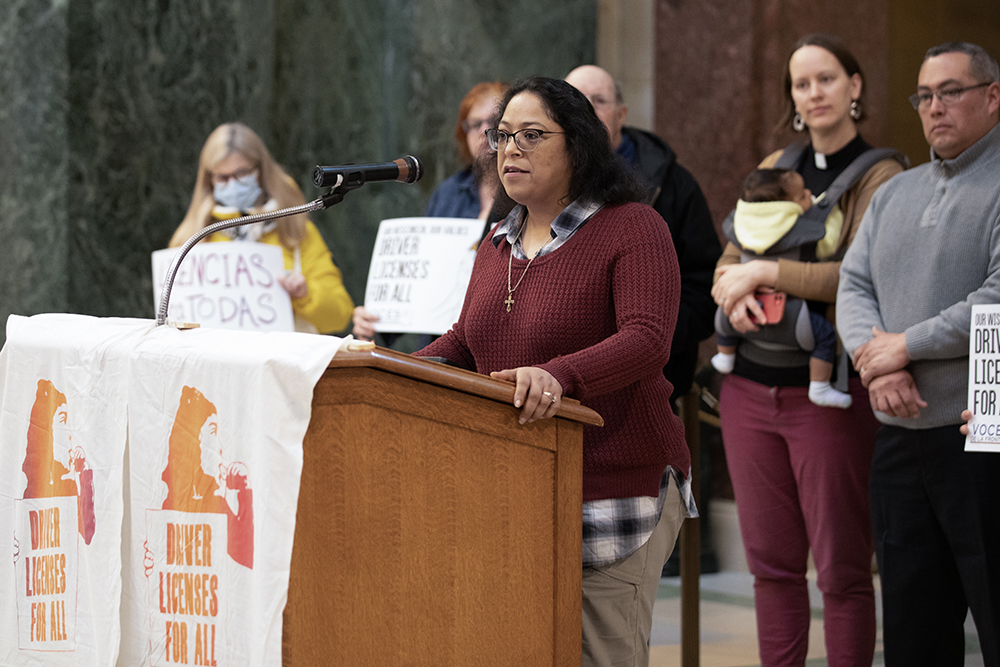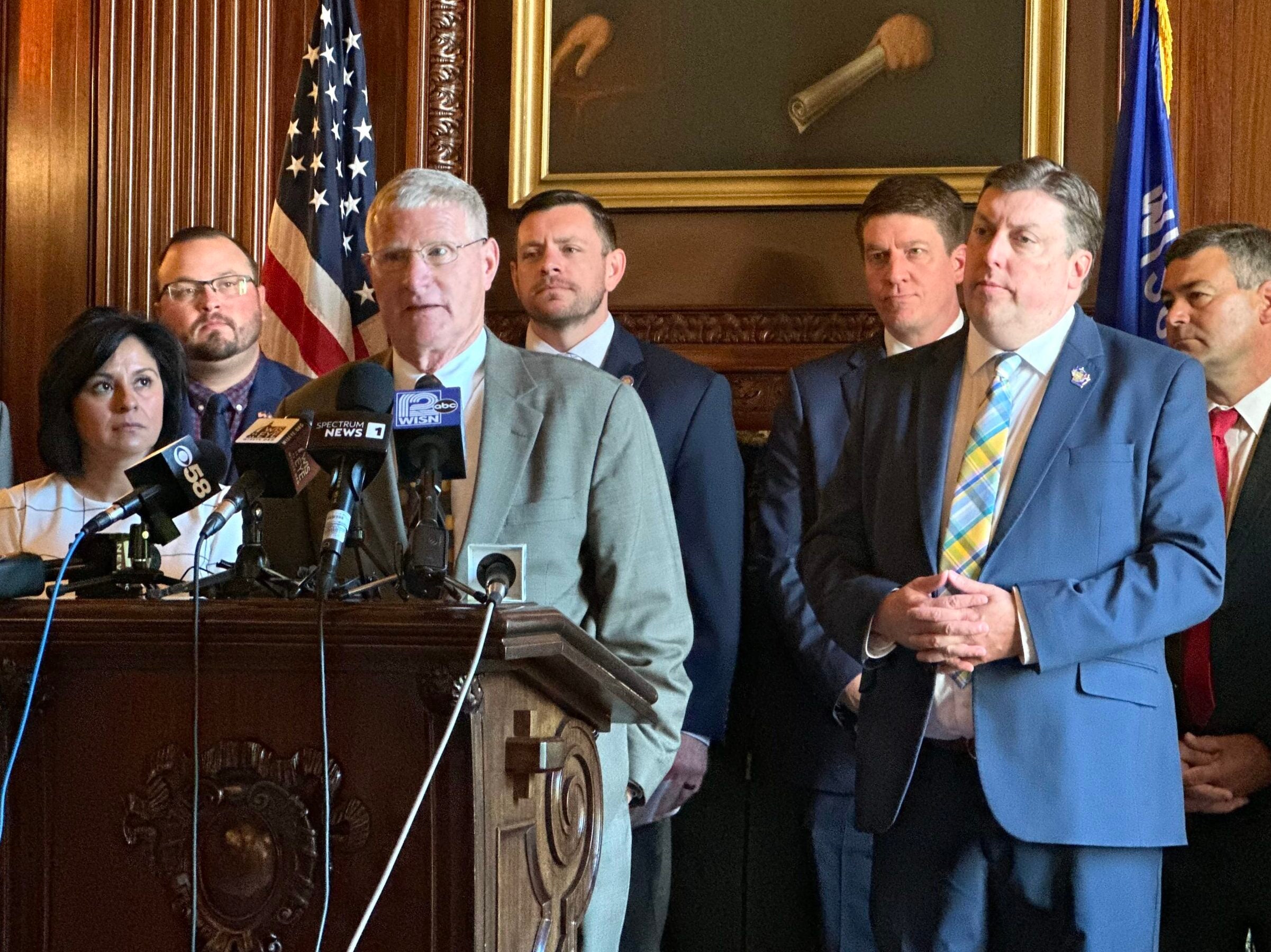Republican state lawmakers’ plan for law changes in response to the COVID-19 pandemic includes a proposal to give themselves more power over state spending cuts, according to an outline of the plan released Wednesday.
The proposal’s outline, released by Gov. Tony Evers’ office, includes a wide swath of GOP-backed plans. It’s the first look at a comprehensive proposal from Republican lawmakers, who control the state Legislature, amid the pandemic. The governor has released two separate plans, which GOP leaders have rejected.
The pandemic is expected to have a sharply negative effect on state revenues, as tax collections dip amid businesses closures and employee layoffs.
News with a little more humanity
WPR’s “Wisconsin Today” newsletter keeps you connected to the state you love without feeling overwhelmed. No paywall. No agenda. No corporate filter.
Under the draft proposal, the Legislature’s state budget-writing committee, which is controlled by Republicans, would be able to cut spending from the state’s general fund and roll back tax cuts without the approval of other lawmakers or the governor. The state’s general fund is used to pay for things like schools and health care. The budget committee is made up of 12 Republicans and four Democrats.
The proposal outline specifically mentions rolling back a promised 2 percent raise for state workers and University of Wisconsin System employees scheduled for January.
Evers signaled Wednesday he might veto the proposal if it passes the Legislature.
“I’m asking for the Legislature to take politics out of this proposal so we can move forward on addressing the needs of our state,” the governor said in a press release.
In response, state Senate Majority Leader Scott Fitzgerald, R-Juneau, criticized the governor for publicly commenting on the plan while it is still in drafting stages.
“Suggesting he’ll veto the full bill publicly, while privately, we’re still negotiating, is irresponsible,” Fitzgerald said in an emailed statement. “We’ll keep working with the minority party to put together a bill that can hopefully pass soon with bipartisan support.”
Assembly Speaker Robin Vos, R-Rochester, didn’t immediately respond to a request for comment.
According to a comparison document provided by the governor’s office, the GOP proposal leaves out many of the things the governor wanted the state to do in response to the COVID-19 pandemic. His plans included grants to local public health agencies and emergency food banks and food delivery operations, as well as a requirement that health insurance companies provide coverage for all telehealth services.
Those proposals aren’t in the GOP plan.
The Republican proposal also doesn’t include a plan to bar landlords from evicting renters or disconnecting their utilities during the public health emergency.
The proposal does include some of the governor’s plans, including authorizing Wisconsin’s SeniorCare program to cover all vaccinations and allowing out-of-state health professionals to work in Wisconsin during the state’s public health emergency.
It would also allow pharmacists to extend most prescription refills by 30 days during the emergency, under certain circumstances, and allow temporary credentials for former health care providers.
Republicans had previously signaled they supported temporarily lifting a one-week waiting period for unemployment benefits in the state. That plan is included in their proposal.
The GOP plan also includes a modified version of the governor’s proposal to create a state fund to reimburse health care providers for services rendered to individuals without insurance during the pandemic.
Republicans would also change the governor’s proposal to require insurance coverage for testing, diagnosis, treatment, prescriptions, and vaccines related to COVID-19. Under their plan, only testing would be covered.
The GOP proposal also includes things not outlined by the governor. Those include a plan to require hospitals, isolation facilities, and any other facility that provides hospitalization to provide the state with daily and weekly reports on their current number of patients, beds, and ventilators.
Their proposal would also prohibit returns of certain personal care products to retailers during the public health emergency and provide health care providers and manufacturers exemption from civil liability during the public health crisis, under certain circumstances.
It’s unclear when the Legislature would meet to vote on these plans. Both the state Assembly and Senate have been testing the equipment necessary to meet in a virtual session to avoid the Assembly’s 99 members and Senate’s 33 members from having to gather in one place in order to cast votes.
Under the $2 trillion federal economic stimulus bill approved about two weeks ago, Wisconsin could expect to receive more than $2.2 billion, including $1.9 billion in direct aid to state government.
Evers doesn’t need lawmakers’ approval to spend the federal funding.
Editor’s note: Wisconsin Public Radio is a service of the University of Wisconsin-Madison and the Wisconsin Educational Communications Board.
Wisconsin Public Radio, © Copyright 2025, Board of Regents of the University of Wisconsin System and Wisconsin Educational Communications Board.

